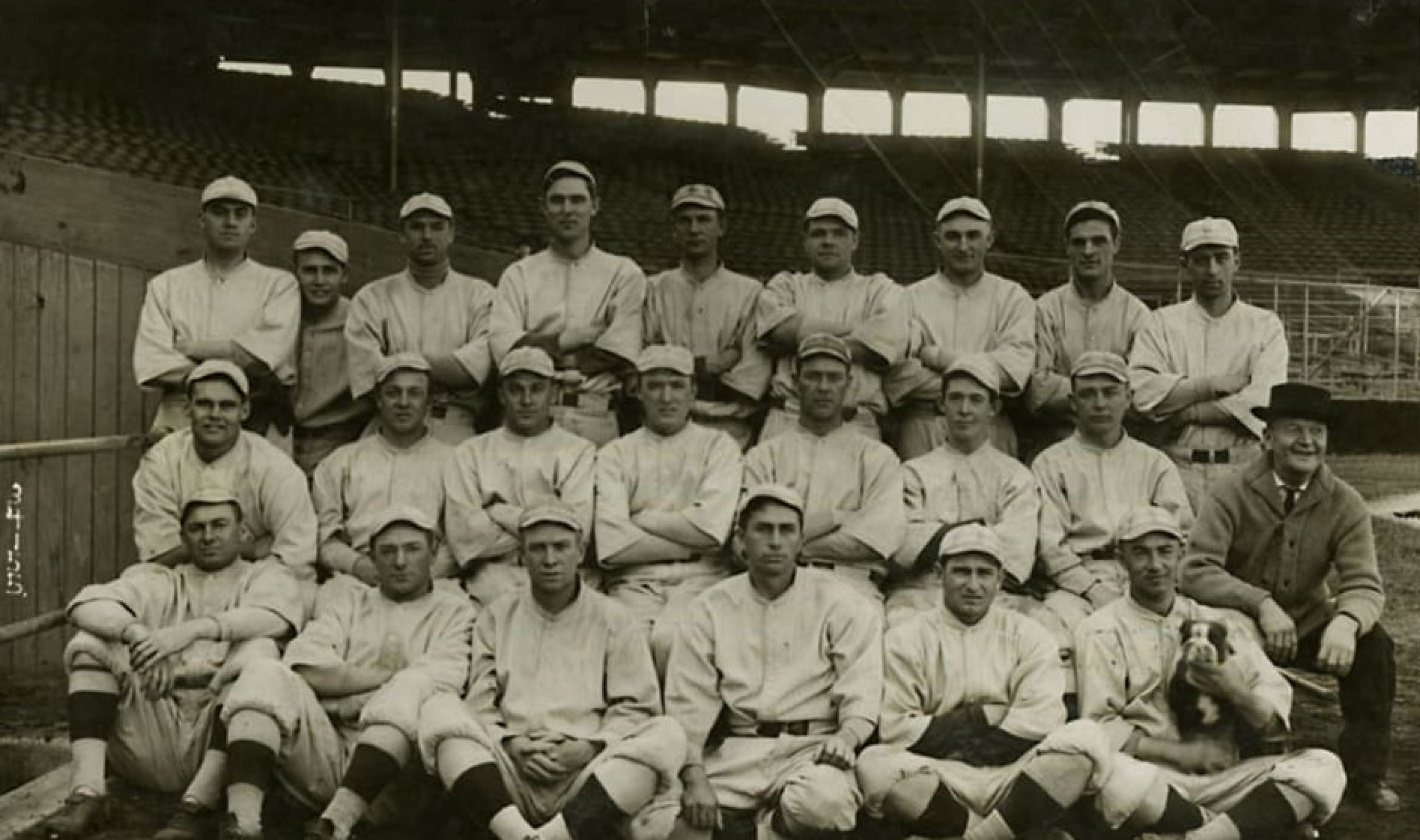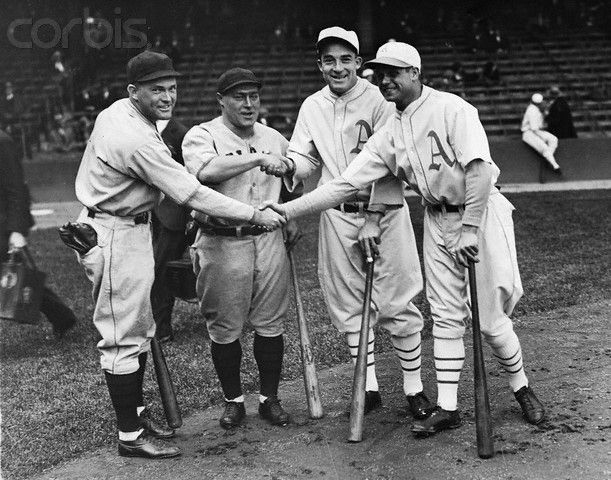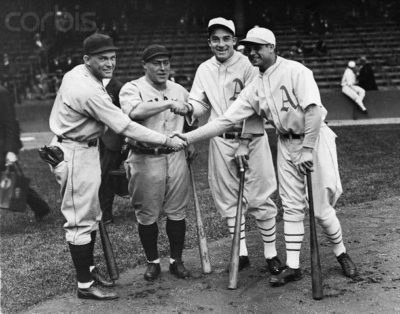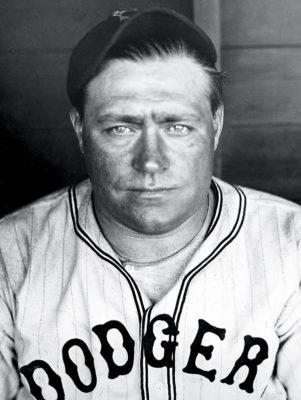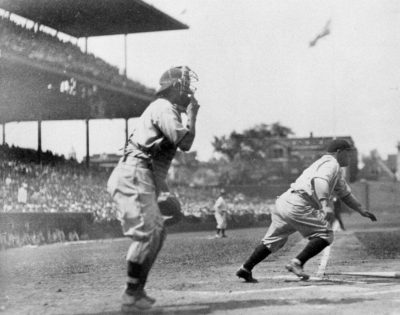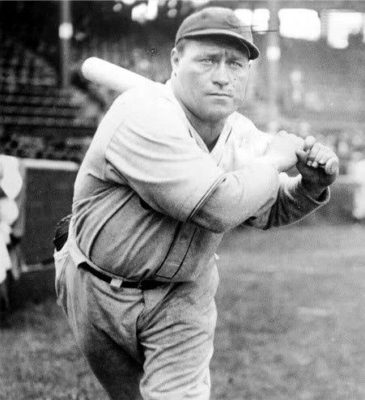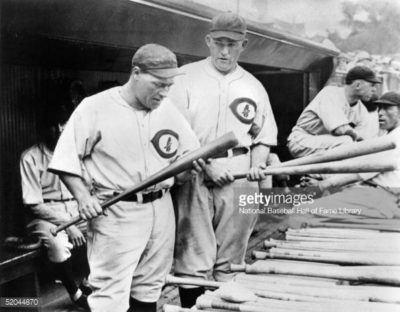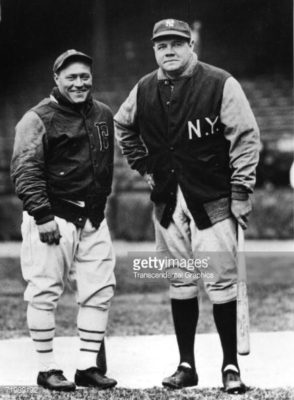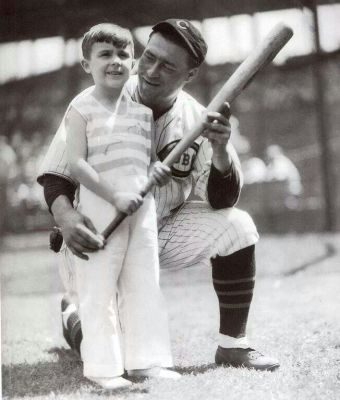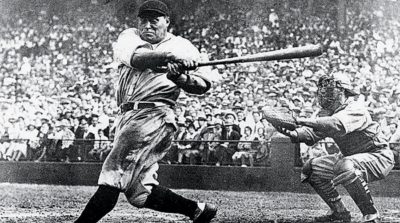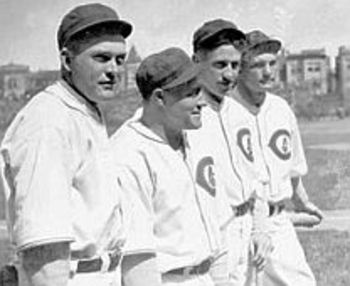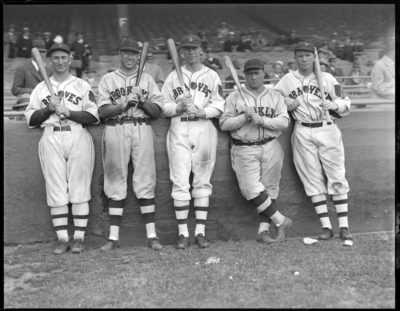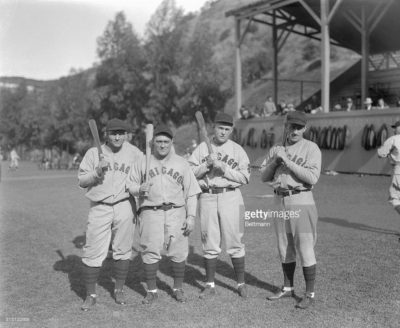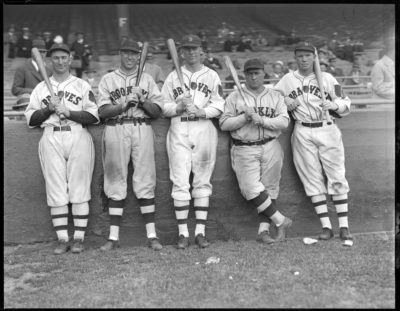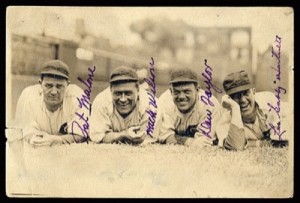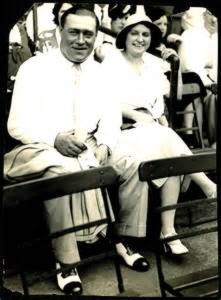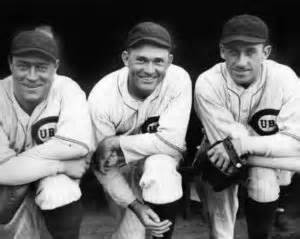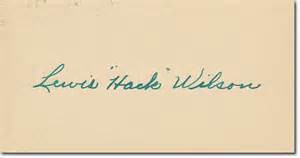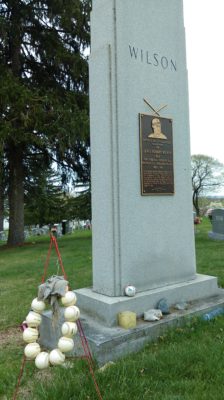Baseball History Comes Alive Now Ranked #2 by Feedspot Among All Internet Baseball History Websites and Blogs!
Guest Submissions from Our Readers Always Welcome!
Subscribe to my blog for automatic updates and Free Bonus Reports: “Memorable World Series Moments” and “Gary’s Handy Dandy World Series Reference Guide.”
Hack Wilson Photo Gallery
Click on any image below to see photos in full size and to start Photo Gallery:
Let’s Take a Moment to Recall the Sad Demise of Hack Wilson
“Talent isn’t enough. You need common sense and good advice. Don’t let anyone tell you different…Don’t let what happened to me happen to you.” – Hack Wilson, one week before his death.
Sixty-nine years ago this week a man identified only as a “white male” passed away in Baltimore hospital. No one came forward to claim the body. There was no money for a coffin. No funeral was planned. All that was known is that the man appeared to have died of alcohol abuse.Not much else was known. However, It was soon discovered that the man was a former baseball player…
We’ve written before about the career of Hall-of-Famer Hack Wilson, so I won’t go into detail again expect to point out the highlights: In his 12-year major league career (1923-’34), Hack Wilson posted a .307 career average with 1,461 hits, .395 on-base percentage, and .545 slugging average. He hit 244 home runs, batted in 1,063 runs, and topped 100 RBIs six times. He led the National League in home runs four times and in RBIs twice. His 56 home runs in 1930 stood as the National League record for decades, and his major league record of 191 RBIs still stands.
In the featured photo above, we see Hack Wilson during the 1929 World Series with teammate Rogers Hornsby and A’s Al Simmons, and Jimmie Foxx.
Today, we’ll focus instead on his sad life after baseball. As often happened to ball players from that era when their time in the limelight came to an end, Hack fell on hard times.
Hack initially returned to his home town of Martinsburg, Virginia where he opened a pool hall. Financial problems soon followed due to a failed sporting goods business combined with a messy divorce. By 1938 he was working as a bartender near Ebbets Field in Brooklyn. More failures and relocations followed in rapid succession: a night club venture in Chicago that went bust; then a job as a good will ambassador for a professional basketball team in Washington, D.C. that didn’t last long.
A move to Baltimore soon followed, with the hopes of finding steady employment: a tool checker job in an airplane manufacturing plant; a laborer for the city of Baltimore; a manager of a Baltimore public swimming pool. But the results were always the same: more disappointment, more failure. It seemed no matter where he went, everyone wanted to talk about his two dropped fly balls in the 1929 World Series. No one wanted to talk about his record 56 home runs and 191 RBIs. The stigma began to take its toll. His family deserted him. Hack’s only relief came from the bottle…
On October 4, 1948 Hack took a fall and was discovered unconscious. Though the accident didn’t appear serious at first, pneumonia and complications from alcoholism soon set in. Six week later, on November 23, 1948, he was dead at the age of 48. How quickly he had fallen. Once the highest paid player in the National League, Hack Wilson died penniless. He son Robert refused to claim his body:
“National League President Ford Frick finally sent money to cover his funeral expenses. His gray burial suit was donated by the undertaker. In marked contrast to Babe Ruth’s funeral, which had been attended by thousands just three months earlier, only a few hundred people were present for Wilson’s services.”
Ten months later, Joe McCarthy, the great Cub and Yankee manager under whom Wilson had thrived, organized a more fitting memorial service to the one-time baseball great. It was attended by many baseball dignitaries: Charlie Grimm, Kiki Cuyler, Nick Altrock and other players from his glory days. A collection was taken up and a granite tombstone was later unveiled with the inscription, “One of Baseball’s Immortals, Lewis R. (Hack) Wilson, Rests Here.”
Gary Livacari
“Friend” me on Facebook: https://www.facebook.com/gary.livacari.9
Visit Our Web page: “Baseball History Comes Alive!” now with over 133K hits!:
http://wp.me/P7a04E-2he
Photo Credits: All from Google search
Information: Excerpts and quote edited from the Wikipedia page.
Check out my new e-book, now available on Amazon: “Memorable World Series Moments!” https://www.amazon.com/dp/
Do you have a baseball book project in mind? I can professionally edit and help you effortlessly self-publish and even convert to a paperback. Contact me with any baseball project ideas: Livac2@aol.com
